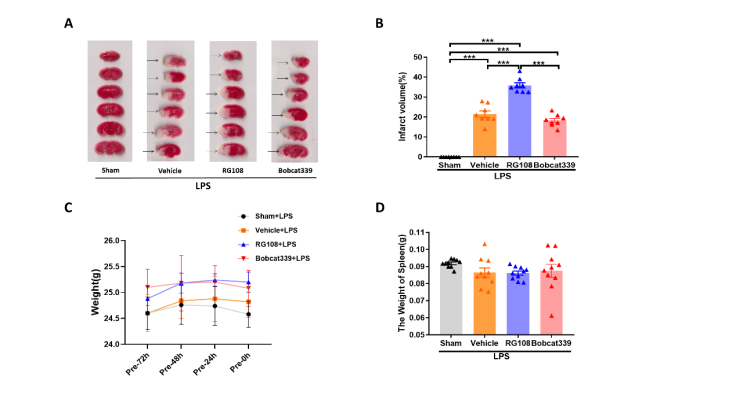中国神经再生研究(英文版) ›› 2024, Vol. 19 ›› Issue (10): 2229-2239.doi: 10.4103/1673-5374.392890
DNA甲基化异常对高炎症状态缺血性脑卒中预后的影响
Association of DNA methylation/demethylation with the functional outcome of stroke in a hyperinflammatory state
Yubo Wang1, 2, #, Ling Zhang1, #, Tianjie Lyu1, 2, #, Lu Cui2, Shunying Zhao2, Xuechun Wang1, 2, Meng Wang2, 3, Yongjun Wang1, 2, 3, 4, 5, 6, *, Zixiao Li1, 2, 3, 4, 5, 6, *
- 1Vascular Neurology, Department of Neurology, Beijing Tiantan Hospital, Capital Medical University, Beijing, China; 2China National Clinical Research Center for Neurological Diseases, Beijing Tiantan Hospital, Capital Medical University, Beijing, China; 3National Center for Healthcare Quality Management in Neurological Diseases, Beijing Tiantan Hospital, Capital Medical University, Beijing, China; 4Chinese Institute for Brain Research, Beijing, China; 5Research Unit of Artificial Intelligence in Cerebrovascular Disease, Chinese Academy of Medical Sciences, Beijing, China; 6Beijing Engineering Research Center of Digital Healthcare for Neurological Diseases, Beijing, China
摘要:
炎症与脑卒中的功能预后密切相关,高炎症状态导致脑卒中功能预后不良。DNA 甲基化与中风的发病机制和预后有关。然而,DNA 甲基化对高炎症水平脑卒中的影响尚不清楚。为了探讨低甲基化/高甲基化状态对高炎症脑缺血功能预后的影响,实验建立了大脑中动脉阻塞小鼠模型,并用脂多糖诱导小鼠进入高炎症状态,使用小分子抑制剂抑制关键 DNA 甲基化/去甲基化酶的功能。实验结果显示,在脂多糖诱导的高炎症状态下,DNA 甲基化的抑制可能是脑缺血向严重性发展的原因。通过检测使用抑制剂后外周血中 DNA 5-mc 和 DNA 5-hmc 的水平,证实了全身甲基化状态的变化。随后发现,DNA 甲基化抑制剂治疗导致小鼠高炎症卒中后梗死体积扩大,功能预后恶化。缺血脑组织和血浆中的白细胞介素6和白细胞介素1β等炎症因子水平升高,炎症加剧。相关的炎症通路研究显示,核因子κB 明显过度激活。这些结果表明,抑制 DNA 甲基化会导致脑缺血后炎症严重的小鼠出现不良的功能预后。抑制DNA去甲基化可逆转上述变化。结果表明,DNA 甲基化可调节脑缺血的炎症反应,并在高炎症脑缺血的功能预后中发挥重要作用。
http://orcid.org/0000-0002-9976-2341 (Yongjun Wang); https://orcid.org/0000-0002-4713-5418 (Zixiao Li)


